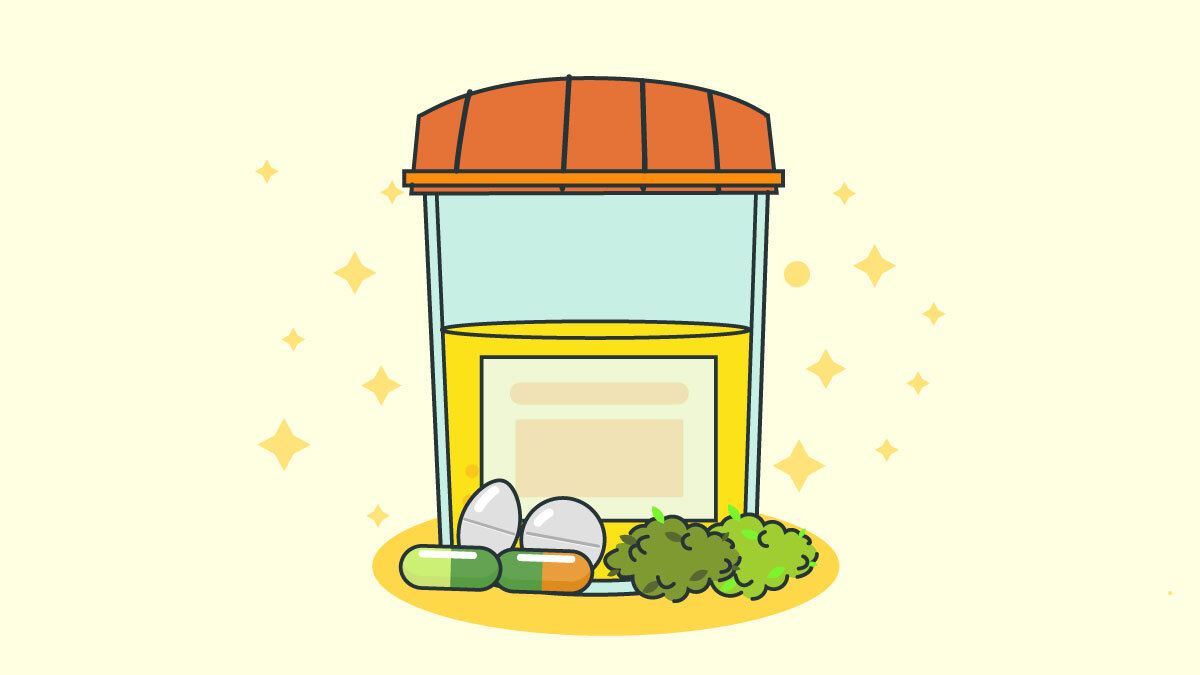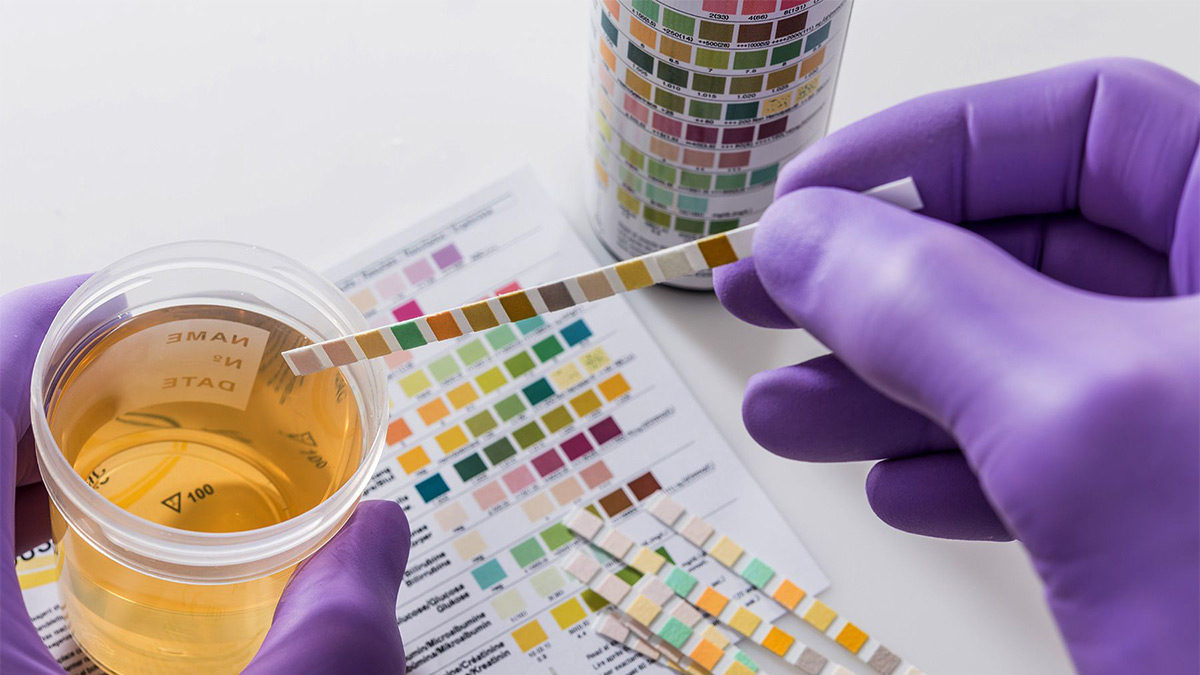Medications That Can Cause A False Positive Drug Test For THC

We’ve all heard the stories.
“I hadn’t smoked for a year, but I tested positive!”
“I had a poppy seed bagel, and then tested positive for weed!”
“I visited a friend who didn’t smoke while I was there, but I tested dirty the next day!”
Most people who test positive for THC are probably going to tell their boss, prospective employer, or probation officer that it had to be a false positive – they never smoke weed! And the excuse usually doesn’t fool anyone.
You obviously won’t come up dirty from eating a bagel or spending an hour in a room where some had smoked up a few hours ago. And you certainly won’t test positive if you haven’t smoked in a year. Those are all just myths, right?
Not all of them. It’s unlikely that a urine test will unfairly “convict” you – but it definitely can happen.
Let’s separate fact from fiction when it comes to false positive drug tests for THC.
How THC Tests Work

Almost all testing for cannabis is done by examining a urine sample. It’s also possible to look for signs of weed use in blood, saliva, and hair, but those methods are either too expensive or too invasive for most employers and agencies to rely on, and saliva can only reliably show use in the past few days at most. (It’s a good thing that hair testing is invasive and expensive; signs of pot use can be detected in hair for months.)
Urine testing, by contrast, can find evidence of marijuana use during the previous 2-7 days for occasional users, and in the past month (or even longer) for regular and heavy smokers. It’s also the least invasive test method. That’s why it’s almost always the test that’s administered.
How can signs of weed use remain in urine for weeks? It’s because the test doesn’t look for THC, which disappears from the body fairly quickly. Instead, it detects the presence of a specific metabolite (byproduct) created in the liver when THC is broken down. It’s called THC-COOH, and it’s stored in body fat. THC-COOH is slowly purged from the body as that fat is burned – so traces of the metabolite can still be found in urine days or weeks after you’ve smoked.
Those who smoke often, smoke a lot, and/or smoke potent weed will usually come up dirty for weeks after their last use, while infrequent users are more likely to get off the hook. That’s not always because the latter are completely clean. It’s because the tests are designed with cutoff levels, and you may be able to skate if there’s only a small amount of THC-COOH left in your urine.
A lab will usually re-examine a positive THC test, using a more complicated method known as gas chromatography/mass spectrometry (GS/MS). That will confirm the presence of THC-COOH above the acceptable cutoff level; experts say GS/MS analysis is nearly 99% accurate.
But even a GS/MS analysis can occasionally be wrong. In fact, some studies show that false positives occur as much as 5-10% of the time. The reason is simple: some labs are more competent than others. The tests have to be calibrated to disregard the presence of compounds that are similar to THC-COOH, and not every lab does that job properly.
That means some substances can cause a false positive drug test for THC.
Fact vs. Fiction: OTC Medications Can Cause A False Positive
Fact.
Over-the-counter cold and cough meds may cause you to test dirty for opiates, amphetamines, or PCP, but not THC. The most common of all OTC medications, though, can be a problem if you’re being tested for weed use.
NSAID pain relievers like ibuprofen (brand names Advil and Motrin) and naproxen (Aleve) have occasionally caused false positives on THC tests. (Ibuprofen may also cause a positive test for barbiturates or PCP.) In one research project, that only happened when a subject was taking 1200 milligrams (six tablets) per day.
So if you’re going to be taking a weed test don’t overdo the ibuprofen, or switch to Tylenol.
One other odd fact: some of the baby soaps used in hospitals have been known to cause false positives for THC.
Fact vs. Fiction: Prescription Medications Can Cause A False Positive
Fact.
Once again, prescription meds are a bigger problem for those taking tests designed to detect the use of drugs like opiates, amphetamines, PCP, or meth. But some types of medications can also make a THC test go tilt.
The biggest offenders are proton pump inhibitors (PPIs) like esomeprazole (Nexium), lansoprazole (Prevacid), pantoprazole (Protonix), and omeprazole (Prilosec), all commonly used to treat gastric reflux (GERD) and peptic ulcers. But some antiviral meds used to treat HIV like efavirenz (Sustiva) have also caused false positives for weed use.
If your test is also going to be searching for other types of drug use, be sure to tell the tester about all of the medications you take. Common prescription medication classes like antidepressants, antihistamines, anti-psychotics, pain relievers, and even decongestants can all cause a drug screen to come up dirty.
Fact vs. Fiction: Second-Hand Weed Smoke Can Cause A False Positive
Usually fiction.
Contact highs aren’t fiction, of course. If you’ve ever been in a room so thick with smoke that it’s difficult to see someone six feet away, you definitely know that it’s impossible to avoid the effects of second-hand weed smoke. However, only a small amount of THC will actually make it into your body if you’re not smoking yourself.
One research project actually put six non-smokers into a room with six smokers (first with no ventilation, and then with adequate ventilation). The non-smokers were then given repeated THC tests over the next 34 hours. Only one tested positive; that person was exposed to the weed smoke in a non-ventilated room, and only tested positive for six hours after exposure. (They tested positive for 24 hours on a more sensitive test, which employers rarely use.)
There’s one other fact that makes a false positive unlikely. Almost all THC tests are calibrated to take the possibility of second-hand exposure into consideration, and their cutoffs are set well above that level.
Bottom line: it’s possible to register a false positive after exposure to second-hand weed smoke – but only in the most extreme situation no one would actually encounter in real life.
Fact vs. Fiction: Poppy Seeds Can Cause A False Positive
Fiction.
There’s nothing in poppy seeds that can trigger a positive result on a THC test.
This myth originated in fact, though. It is possible for poppy seeds to cause a false positive on a test for opiates, since the seeds may contain trace amounts of morphine and codeine. The recommended cutoff levels for opiate tests, however, have been raised to compensate for this oddity, so only labs using old guidelines will be “fooled” by a poppy seed bagel.
What Can Cause A False Positive Drug Test For THC? FAQ
Q: Will edibles result in the same positive or negative THC results as smoking?
A: Generally speaking, yes – although the length of time that THC-COOH can be detected in urine depends on the potency of the edibles and how often they’re eaten.
Q: Does CBD use can result in a positive THC test?
A: It might. Full-spectrum CBD contains a small amount (less than 0.3%) of THC, so it’s possible to test positive for a few days after using it. And even CBD products that supposedly don’t contain any THC might actually have been mislabeled (or the manufacturers may be lying). Testing positive because of CBD use is unlikely, but it’s been known to happen.
Q: What about eating hemp seeds, or using hemp oil in food?
A: Again, it’s possible, but you’d have to consume a ton of hemp – much more than anyone would eat in a day – in order to test positive on most modern THC tests.